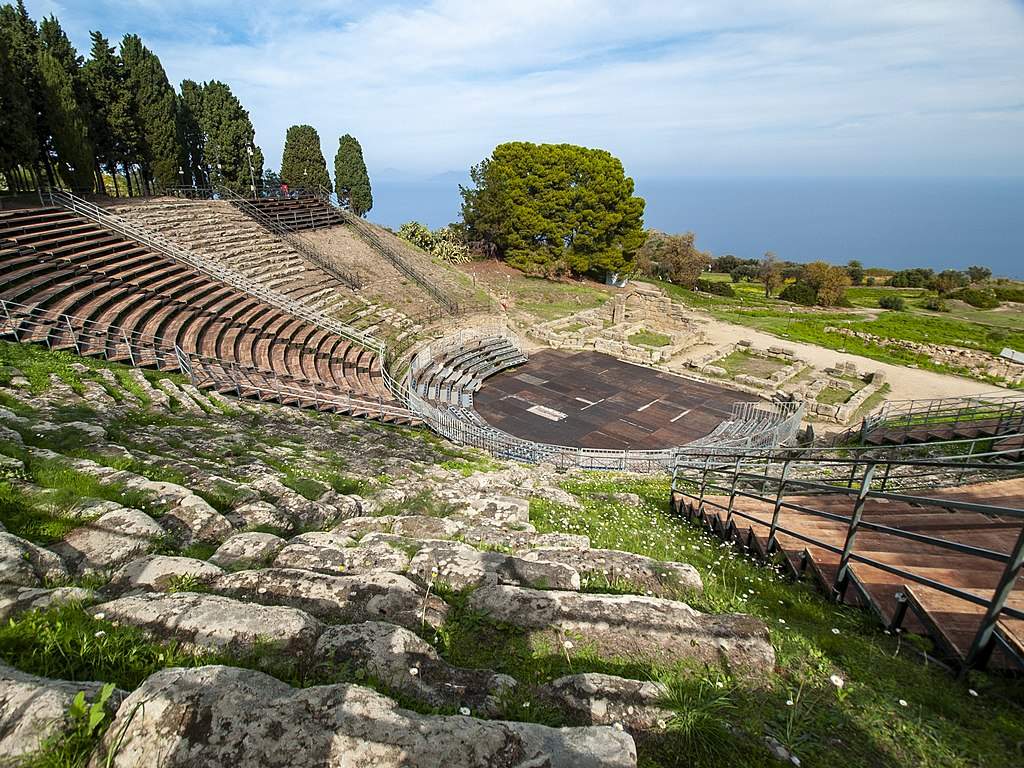Our newspaper had raised a few days ago, with an inquiry by Silvia Mazza, the problem of the politicization of archaeological parks in Sicily. Now several associations active in the protection of cultural heritage oppose an uprising to say no to the drift. The associations are Italia Nostra, Legambiente, Assotecnici, Confederazione Italiana Archeologi, Associazione Ranuccio Bianchi Bandinelli, Do you recognize me? I am a cultural heritage professional. What happened? Summing up briefly, it was last May 20 that the Councilor for Cultural Heritage and Sicilian Identity Alberto Samonà signed the first decrees with which, as he announced more than three months ago, the word “end” is put on the long commissioning of the thirteen archaeological parks in the region of Sicily, so that the technical-scientific committees, co-governance bodies of the directors, can finally be installed. It begins with the Himera and Tindari parks. These committees are one of the key elements that qualify the autonomous arrangement that distinguishes parks from museums or superintendencies, allowing them to retain the revenues from the management activity of the conferred assets, instead of paying them, like the others, into a single item in the region’s budget.
The problem is that, looking at the nature of these committees, their composition and tasks, the issue begins to take another turn. “What is a team of politicians doing in technical-scientific bodies called to pronounce on the fate of millions of square meters of territory, a concentration of cultural and landscape assets among the most important in the world?” the associations ask. “In organs that express themselves by majority vote, there are 9 mayors in the Himera park against 3 technicians and 5 in the Tindari park also against 3 technicians.” Who, for that matter, would be pleased to see politicians on the technical and scientific committee of the Covid emergency? In the Sicilian culture sector, this is about to happen instead. And consequently there is great concern, that the regional law allows these committees, thus composed, to give a “technical” decision-making opinion, which could even replace that of the superintendencies.
A pronouncement that, instead, the superior state law recognizes exclusively to technicians (Art. 9-bis of Legislative Decree 42/2004 “Cultural Heritage Code”). “Evident is the conflict in which these mayors will find themselves whenever on the one hand they act as spokespersons for the interests of the territories they administer and on the other hand they will be called upon to express an opinion on the same,” the associations say. “None of this in the rest of Italy. Where the necessary representation of local authorities in the park community, a fundamental principle of state as well as regional legislation, is resolved differently: mayors do not sit directly on the scientific committees, but their experts, such as tenured university professors or specialists with proven scientific qualifications. The presence of a mayor, lawful in its substantial collaborative function, cannot in any way interfere with the autonomy necessary for the exercise of protection and the freedom of the actions of valorization and research: supreme ends to which Archaeological Parks must compete.”
So, it is to discuss this and all the other critical issues facing archaeological parks, and to put solutions on the table, that the associations in defense of cultural heritage, landscape and environment, together with art historian Silvia Mazza, announce by June a meeting open to the public in Palermo. Also at the center of the confrontation will be, among other things, the administrative dis-organization that has given birth to extra-large parks that vastly exceed the territorial limits set by the perimeter decrees of each; the real hemorrhage of archaeologists in the endowment of these institutes, in which only 4 directors have this qualification; the ’updating of the relevant regional legislation; and the rethinking of the tasks and composition of the committees and other management bodies for an efficient “Sicilian model” of decentralized governance, capable of making the archaeological and landscape heritage interact with the socio-economic potential of the territories falling within the parks.
Pictured: the Greek theater of Tindari. Photo by Chris Lloyd
 |
| Associations say no to CTSs of Sicilian archaeological parks with politicians inside |
Warning: the translation into English of the original Italian article was created using automatic tools. We undertake to review all articles, but we do not guarantee the total absence of inaccuracies in the translation due to the program. You can find the original by clicking on the ITA button. If you find any mistake,please contact us.